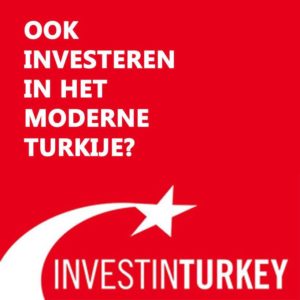This week news broke that Turkey’s largest city would have a record budget of $13.7 billion for 2015. AA examines what is fuelling this spending and how Istanbul will cope with its rampant growth
As the largest city in Turkey – an important industrial, commercial and cultural center in the region and a shoo-in for being one of the biggest 10 megacities in the world – Istanbul has a budget bigger than the GDPs of 80 countries including Albania, Macedonia and Armenia.
It sounds shocking, but, earlier this week, a record consolidated budget of 31.9 billion Turkish lira ($13.7 billion) was allocated to the Istanbul Metropolitan Municipality for next year, a figure that exceeds the budgets for 19 Turkish ministries.
The huge sum begs the question of how fast the city is growing and how to best manage this growth in both population and transportation.
According to economists, for the growing population of Istanbul the budget of 31.9 billion lira – ostensibly an astronomical sum – is really a reasonable amount.
“Istanbul’s population, which is officially 15 million, is higher than 130 countries across the world. Unofficially, it has exceeded 17 million people with unregistered inhabitants and domestic and foreign tourists,” says Firat Polat, general coordinator of the Economists Platform, a firm of Turkish consultants.
Polat says one of the main drivers behind Istanbul’s big budget is its enormous population: “The budget of 31.9 billion Turkish lira seems a sufficient amount to manage this megacity and its population.”
According to a 2014 United Nations report, the number of megacities – those with more than 10 million people – has increased three-fold globally over the past 24 years.
Today there are 28 megacities including Tokyo, Shanghai, Beijing, Sao Paulo, New York, Mexico City, Mumbai, Osaka, Delhi and Dhaka; Istanbul ranks 23rd on the list.
“For example five years ago, in the beginning of 2010, Istanbul’s population was 13 million and the consolidated budget of the municipality was 17.9 billion Turkish lira,” says Polat.
“The number of inhabitants has increased 20 percent in the past five years while the budget has boomed nearly 75 percent. The rise of the budget is more than the rise of population which is totally normal.”
However, the experts think that dense urban environments may provide certain benefits but generate hazards like transportation problems, traffic jams, pollution and unemployment.
“This mass rush towards Istanbul has created many problems. With the latest policies, it seems impossible to prevent the population growth of the city,” Polat says.
The first and maybe the most pressing problem of this growing city is transportation, experts say.
“For two decades, Istanbul has been struggling to solve this problem,” says Mustafa Ilicali, a transportation consultant for the Istanbul Metropolitan Municipality: “The wasted time in traffic jams in Istanbul costs over $5 billion every year,” he claims.
Similarly, Polat says in direct proportion to rising population, the biggest part of Istanbul’s 2015 budget has been reserved for transportation.
“Nearly five billion Turkish lira is allocated for transportation investment in 2015. Istanbul is a metropolis which has not completed its transportation investments yet. Expanding railways and completing transportation investments entail a serious cost,” Polat says.
Istanbul is the second-worst European city after Moscow in terms of traffic congestion, according to 2012 data from Europe’s biggest navigation systems company, TomTom.
In recent years, the city has persistently tried to tackle traffic problems. In last decade, around 32 billion Turkish lira were allocated for transportation investments in the city.
The Marmaray – a railway tunnel underneath the Bosporus Strait – cost 8 billion Turkish lira. The tunnel transported around 21 million passengers in the first six months following its inauguration in October 2013, according to data from the Turkish Statistical Institute.
The Metrobus system, which was implemented in 2007, now spans 52 kilometers, linking more than 40 stations. It has become one of the most popular public transportation services in Istanbul.
The city plans to add more than 600km of metro railway to the current 150km by 2019.
A third bridge over the Bosphorus is currently under construction and is expected to be ready by the end of 2015. IC ICTAS Construction Company, which is building it, claims it will be the widest (59 meters), longest (1,048m) and highest (320m) bridge in the world.
It is huge projects like this which analysts say is helping fuel this budget expansion: “In 2015, the urban transformation and infrastructure construction will accelerate,” Polat says.
Of the Istanbul province’s total investment financing, around 4.7 billion lira are reserved for environmental investment.
The ruling Justice and Development Party aims to oversee $400 billion worth of urban transformation in Turkey until 2023; Istanbul takes the lead in much of this development.
Turkey’s largest city is undergoing a range of renovation projects; while some buildings have been demolished for not being earthquake-resistant, others were renovated due to interest from foreign buyers.
Besides the urban transformation, the city also has many major projects like Kanal Istanbul, the redevelopment of Taksim Square and a third international airport.
Government policies foresee that the rapid urbanization and the improvement in Istanbul’s infrastructure will make the city a more attractive market for the region and the world.
Istanbul single-handedly contributed a sweeping 39.05 percent of the entire Turkish budget with some $68.2 billion in 2013. In turn, some $7.8 billion lira were spent on Istanbul from the budget.
The entire province is also boosting the country’s exports by providing nearly half of Turkey’s foreign trade in 2014, according to the Turkish Exporters’ Assembly.
Stating that the more population grows, the more projects increase, Polat says: “All this investment and construction mean that Istanbul’s consolidated budget will continue to increase in the next years.”
AA | ISTANBUL


